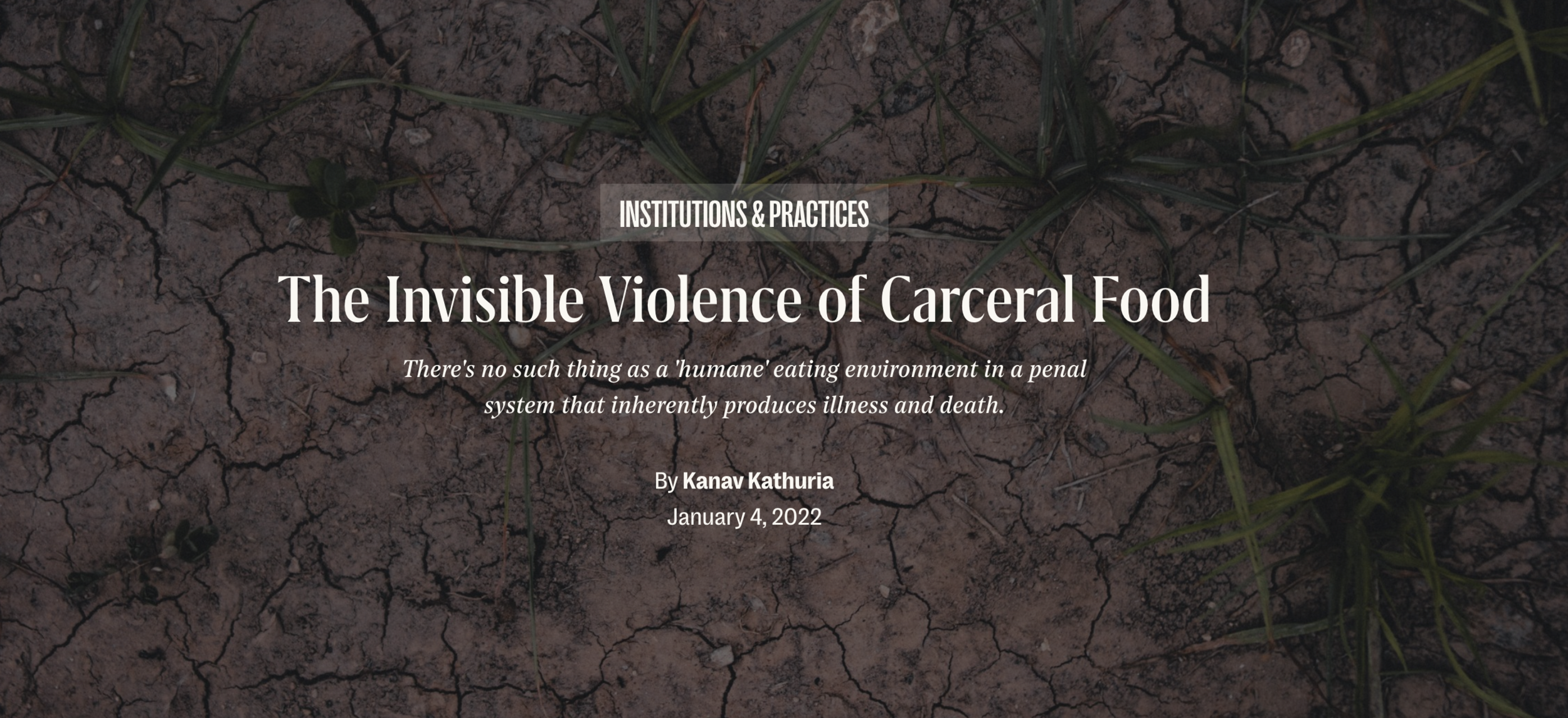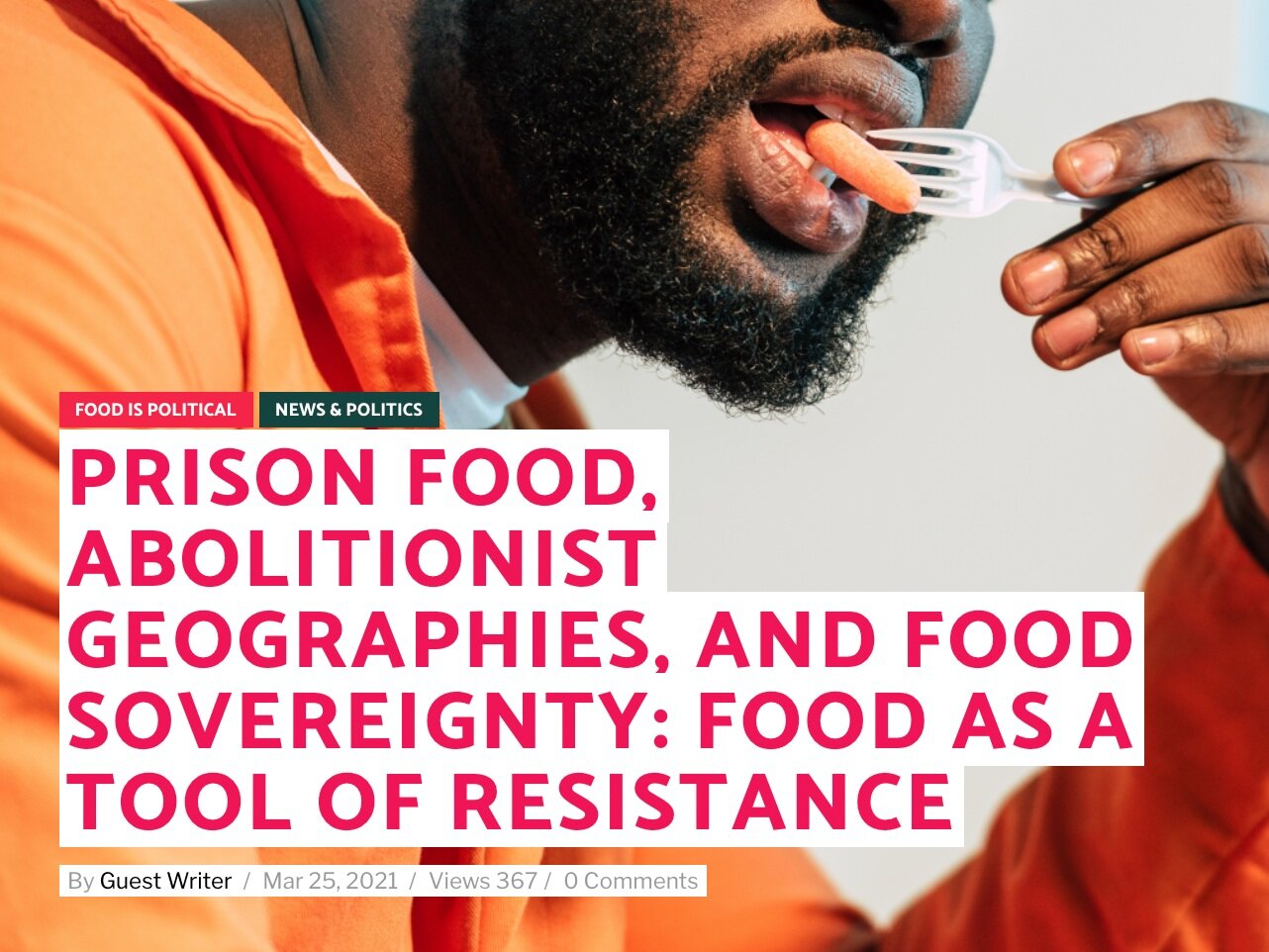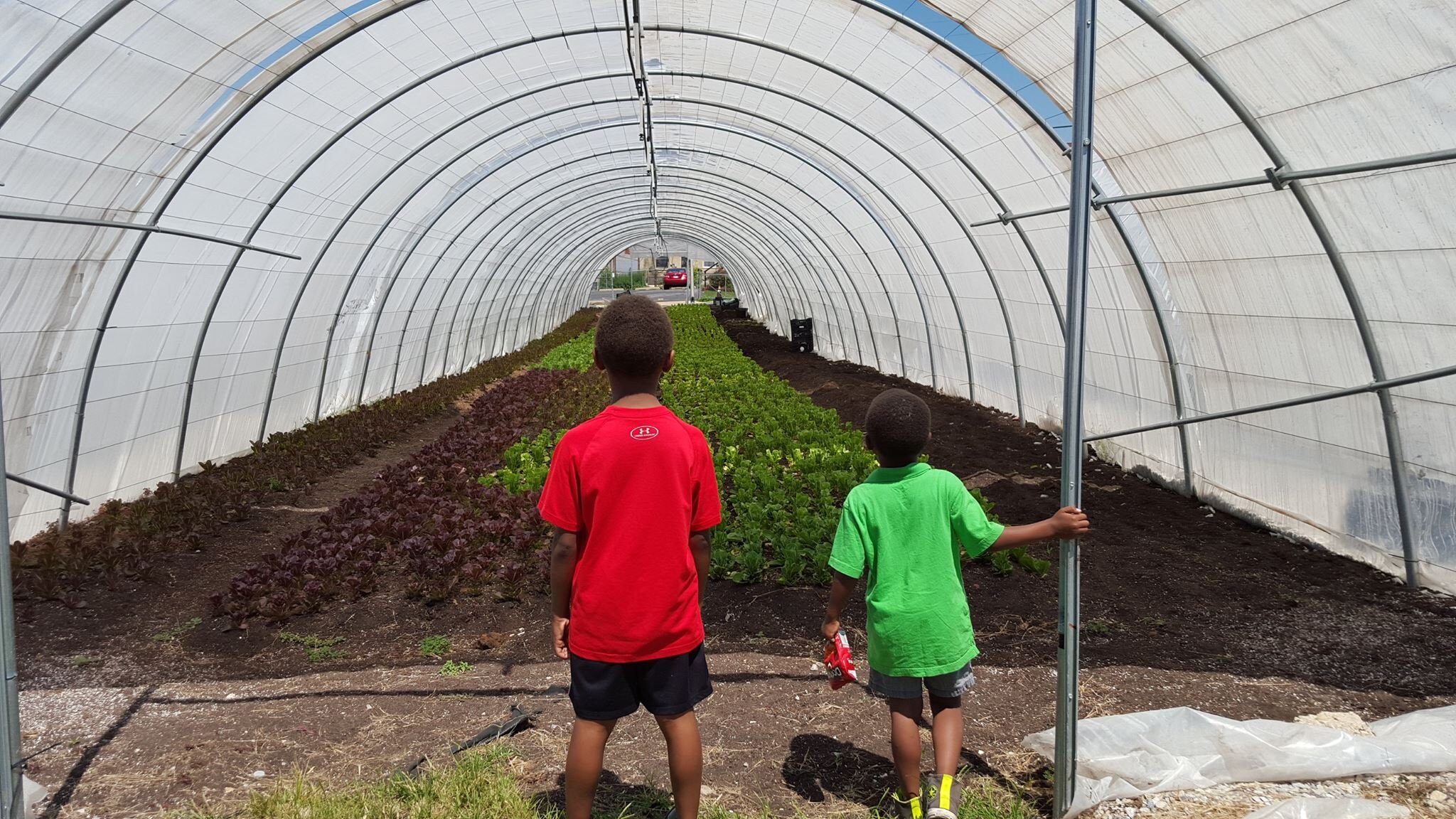News and Updates.
“My dog, I swear to God, eats better than the food in there. I wouldn’t even serve that to my dog.”
Prison food in the United States is a public health and human rights crisis. As modern-day prisons are rooted in historical systems of racialized oppression, food in confinement reproduces similar dynamics of control, punishment, and dehumanization utilized by systems such as slavery and convict leasing.
By weaponizing the experience of eating, the state transforms one of our most basic needs into an everyday form of violence. The short- and long-term effects of poor food conditions on incarcerated individuals' health also constitutes a form of “premature death” — oftentimes damaging a person’s physical and mental health and well-being for the rest of their life.

Instead of advocating for “kinder, gentler” prisons, we ask how addressing the role of food in confinement can advance an abolitionist vision that builds communal power and helps tear down the prison-industrial complex in all of its manifestations.
By connecting urban and small-scale farms in Baltimore to prisons in Maryland, we aim to pave the pathway for conditions for resistance on the inside and support community-based forms of self-determination on the outside.

Food Provision in Maryland's Prisons:
An Overview
"My grandchildren couldn't live off a portion of that. I mean a child couldn't eat that and be filled up.”
- Individual currently incarcerated in a Jessup prison
“My stomach can't hold it. So it either comes out or down. Up or down. It doesn't matter where it goes, but it comes out. I can't eat this.”
- Individual currently incarcerated in a Jessup prison
“You taste your mother or your grandma's cooking you like, you be wanting to kiss them. You taste [the food] in prison you want to fight somebody. Two different feelings.”
- Individual formerly incarcerated in multiple Maryland prisons
“You have to make do. The majority of the food… is not edible, but you have to make do. You eat or you starve.
- Individual formerly incarcerated in a Baltimore prison
”Absolutely [the food] induced depression. You sleep and then you get up for breakfast… you pick through it and you go to sleep. And then you wake up at lunch, and [the meal] is even worse.
- Individual formerly incarcerated in multiple Maryland prisons
“Even though I was working in the kitchen, I couldn’t bring food out. Even if you sneak it out… and you get caught with it, you're going on lock up. You’re then going to lose your job. But some people had to do it because they were hungry.”
- Individual formerly incarcerated in multiple Maryland prisons
“[Correctional staff] are not worried about taste or nutritious value… [they’re] just trying to get these guys fed so they can't say that they didn't eat.”
- Individual formerly incarcerated in multiple Maryland prisons
“You try eating with a Correctional Officer yelling at you, “you got three minutes left, you got five minutes left”… You could be eating and trying to chew your food, and they're screaming at you, get out! get out!”
- Individual currently incarcerated in a Jessup prison
”It's inhumane. A dog would have to be seriously hungry to eat that. My dog wouldn't eat that.”
- Individual currently incarcerated in a Jessup prison

Our Work.
How can food be used as a site of resistance both inside and outside of prison?
Our short-term goal is to improve all aspects of food service in Maryland state correctional institutions, including quality and quantity, nutritional value, and the prison eating environment.
Our first step is to increase the amount of fresh produce available by sourcing produce from urban and small-scale farms in Baltimore and Maryland.






















